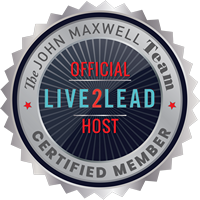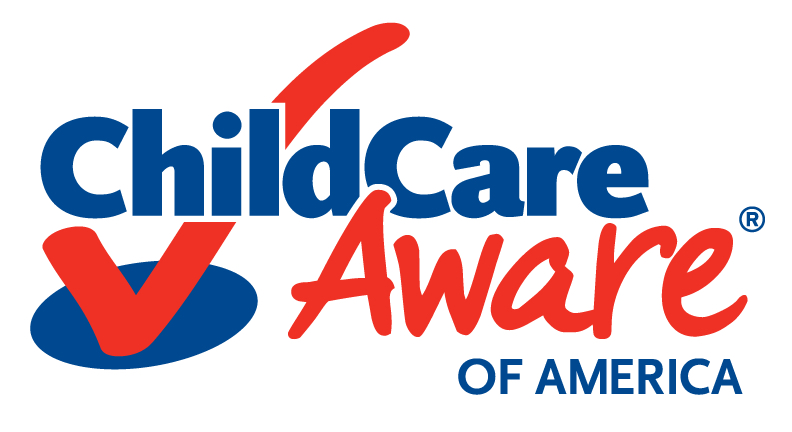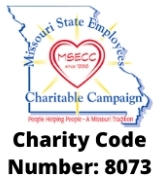The Ultimate Guide to Obtaining Grants for Daycare Centers

If you are looking for grants for opening daycare centers in Missouri, you are in luck. In Missouri, there are various financial assistance programs available to help daycare owners manage their business. In this article, we will discuss some of the programs and grants for opening a daycare center that are available to Missouri residents, and how to apply for them.
What Grants are Available for Opening a Daycare Center in Missouri?
There are many grants available for opening a daycare center in Missouri. The Missouri Department of Health and Senior Services offers a Child Care Grant Program that provides financial assistance to child care providers who meet the requirements set by the state. The program is designed to help low-income families afford quality child care.
In addition, the Missouri Department of Economic Development offers a Child Care Facility Development Grant Program that provides financial assistance to businesses that want to open or expand a child care center. The program is designed to create or expand child care facilities that will serve low-income and working families.
There are also many private grants available for daycare centers. The Missouri Child Care Association offers a variety of grants to members, and the Missouri Department of Social Services offers a Child Care Resource and Referral Grant Program that provides financial assistance to families who are looking for child care.
So, there are many grants available for daycare centers in Missouri. If you are interested in opening a daycare center, be sure to research the different grants available and see which ones you qualify for.
What are the Eligibility Requirements to Obtain Grants for Daycare Centers?
You’ve decided that you want to apply for a grant to help fund your business, but what are the eligibility requirements for each type of grant? What paperwork must you have at the ready before you begin your application?
The eligibility requirements for each type of grant vary, so it’s important to do your research before applying.
For example, some grants are only available to businesses in specific industries, while others are open to businesses of all sizes.
In general, you’ll usually need to meet the following eligibility requirements to be considered for a grant:
- You must be a legal resident of the United States.
- You must be a business owner or entrepreneur.
- Your business must be in operation for at least one year.
- Your business must be profitable.
- Your business must have a good credit score.
- Your business must be in compliance with all state and federal regulations.
There are many ways to apply for a grant, but the most common way is to submit a proposal to the grant-making organization.
The proposal should include a cover letter, table of contents, project description, budget, and resumes of the project team.
What Programs and Grants for Opening a Daycare Center are Available to me?
Financial assistance can come in the form of grants, loans, or tax credits.
Grants are a type of financial assistance that does not have to be paid back. This makes them a great option for those who are starting a daycare. Grants are available from a variety of sources, including the government and private organizations.
Loans are another option for financial assistance. They typically must be paid back, but they can be a great way to get started with your daycare. There are a variety of loan options available, so be sure to explore them all.
Tax credits are another great way to get financial assistance for your daycare center. They can help reduce the amount of taxes you owe, which can be a great help with your start-up costs.
There are a variety of tax credits available, so be sure to research the ones that are best for you.
All these options can help you get started with your daycare. Be sure to research all your options and find the best one for you.
To learn more about the grants available to open a daycare center in Missouri, visit the website of the Missouri Department of Health and Senior Services. There you can find a list of all the grants available, along with their eligibility requirements and application forms.
- The Missouri Department of Health and Senior Services offers a Child Care Grant Program that provides financial assistance to child care providers who meet the requirements set by the state. The program is designed to help low-income families afford quality child care.
- The Missouri Department of Economic Development offers a Child Care Facility Development Grant Program that provides financial assistance to businesses that want to open or expand a child care center. The program is designed to create or expand child care facilities.
- The Missouri Child Care Association offers a variety of grants to members.
- The Missouri Department of Social Services offers a Child Care Resource and Referral Grant Program that provides financial assistance to families who are looking for child care.
Some additional grant opportunities not outlined above include:
The Childcare Development Fund
The Child Care Development Fund (CCDF) is a federal and state partnership program authorized under the Child Care and Development Block Grant (CCDBG) and administered by states, territories and tribes with funding and support from the Administration for Children and Families’ Office of Child Care.
States use the CCDF to invest in quality to benefit more children by building the skills and qualifications of the teacher workforce, supporting child care programs to achieve higher standards, and providing consumer education to help parents select child care that meets their families’ needs.
This grant provides up to $50,000 for the development or improvement of a child care facility. The grant can be used for the purchase of property, renovation of facilities, equipment, and other costs associated with starting or expanding a daycare center.
The Innovation Startup
This grant for opening a daycare opportunity allows for increased access to child care in partnership with a business or community partner.
The amount of funding is dependent upon the facility capacity, traditional and/or non-traditional hours of operation, and a commitment in matching funds or in-kind contributions to support the new child care program.
To be eligible, the child care program must plan to operate in a location where no other child care providers were licensed as of Dec. 1, 2022. The applicant must not have previously operated a child care program there either.
Preference will be given to rural communities and child care deserts.
Once awarded, payments will be made to the child care provider based on the matching funds or in-kind contributions from the business or community partner and three required licensing activities:
- completing the initial inspection
- obtaining a child care license
- completing the post-licensing inspection
Deadline to apply for the Innovation Grant to Start-up a New Child Care Program is May 31, 2023. If awarded, the provider must become a licensed child care program with children enrolled by March 31, 2024.
What Are the Benefits of Receiving Grants for Opening a Daycare Center?
There are many benefits to receiving a grant. One of the biggest benefits is that you will have extra money to spend on your business. This extra money can be used to pay for advertising, marketing, and other costs associated with running your business.
Additionally, grants can help you to establish your business credit. When you receive a grant, the grant issuer will often report the grant to the major credit reporting agencies. This will help to build your business credit history and make it easier to borrow money in the future. Finally, grants can help you to qualify for other types of financing. By demonstrating that you have received outside financing, you can show that your business is worthy of investment.
How Do You Apply for Financial Assistance to Open a Daycare in Missouri?
To apply for financial assistance to open a daycare in Missouri, you will need to complete the Daycare Financial Assistance Application. This application can be found on the Department of Social Services website.
The application will ask for information about your business, such as your name, address, and contact information. It will also ask for information about your daycare, such as the ages of the children you plan to care for and the hours of operation.
The application will require you to provide proof of your income and assets. This can include bank statements, tax returns, and business licenses.
Once you have completed the application, you will need to submit it to the Department of Social Services.
The Department will review your application and will let you know if you are eligible for financial assistance. If you would like to receive direct assistance from Child Care Aware® of Missouri, reach out to us today!
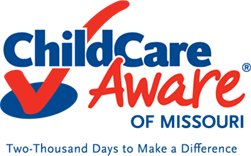

 Education is expensive, but it’s also crucial to your personal and professional development, especially in the child care field. Teaching in Missouri is a highly complicated field, especially when it comes to early childhood education. As such, you need all the knowledge and help you can get to do the job effectively. A T.E.A.C.H. Missouri grant can be a helpful tool to get you the education and career advancement you’re looking for.
Education is expensive, but it’s also crucial to your personal and professional development, especially in the child care field. Teaching in Missouri is a highly complicated field, especially when it comes to early childhood education. As such, you need all the knowledge and help you can get to do the job effectively. A T.E.A.C.H. Missouri grant can be a helpful tool to get you the education and career advancement you’re looking for.




 Are you a parent, teacher, or daycare center owner looking to receive a grant for daycare in Missouri?
Are you a parent, teacher, or daycare center owner looking to receive a grant for daycare in Missouri?


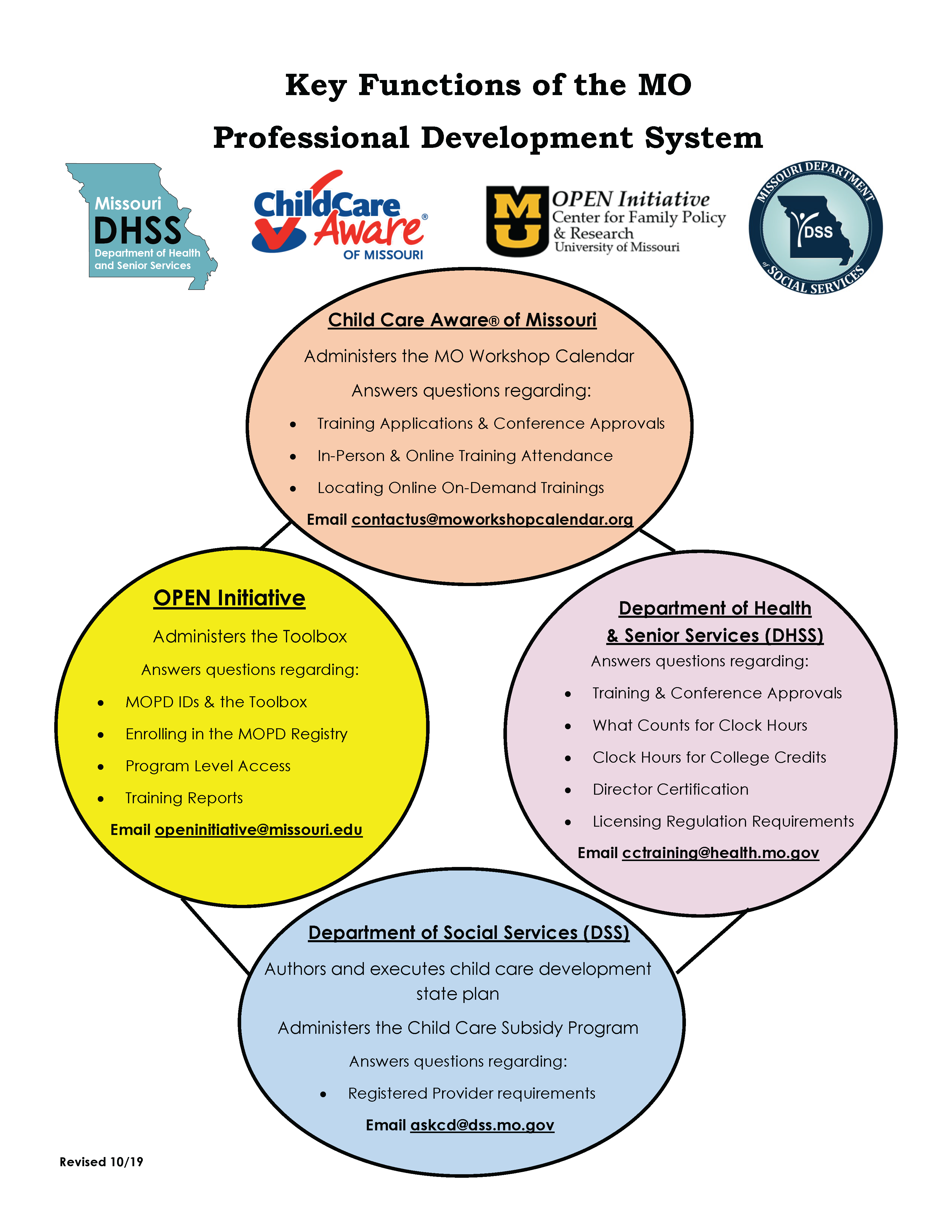
 If you’ve heard there’s a program in Missouri that promotes healthy physical activity in child care settings, then you’re probably thinking of MOve Smart. Curious readers have found themselves in the right place — we’re here to take you through all aspects of the program, from child care professional training to earning the distinction for your child care facility.
If you’ve heard there’s a program in Missouri that promotes healthy physical activity in child care settings, then you’re probably thinking of MOve Smart. Curious readers have found themselves in the right place — we’re here to take you through all aspects of the program, from child care professional training to earning the distinction for your child care facility. Lots of child care professionals want to pursue their CDA in child care. If you’re not aware, CDA stands for Child Development Associate credential. Earning a CDA in child care is a big deal. It signals to your peers and potential employers that you’re serious about your chosen profession.
Lots of child care professionals want to pursue their CDA in child care. If you’re not aware, CDA stands for Child Development Associate credential. Earning a CDA in child care is a big deal. It signals to your peers and potential employers that you’re serious about your chosen profession. The past couple years have forced us to get used to lots of life happening online. Child care training online is no exception. Of course, online child care workshops have existed for a while, and they’re by no means new, but they’re particularly well-suited to our current climate. You can learn a lot about the field without having to leave your home. Plus, since different states require child care workers to complete a certain number of training hours each year, they’re a great way to stay on top of your obligations.
The past couple years have forced us to get used to lots of life happening online. Child care training online is no exception. Of course, online child care workshops have existed for a while, and they’re by no means new, but they’re particularly well-suited to our current climate. You can learn a lot about the field without having to leave your home. Plus, since different states require child care workers to complete a certain number of training hours each year, they’re a great way to stay on top of your obligations.  Keeping up with all the latest advances in the child care field is so important — it’s an incredibly complex field that’s hard to understand. That’s why child care online training courses are a great resource for child care providers. And free child care trainings are even better. Both of these kinds of options make education more accessible to more child care providers, and that’s always a good thing.
Keeping up with all the latest advances in the child care field is so important — it’s an incredibly complex field that’s hard to understand. That’s why child care online training courses are a great resource for child care providers. And free child care trainings are even better. Both of these kinds of options make education more accessible to more child care providers, and that’s always a good thing.  Becoming more highly qualified as a child care provider has so many benefits — benefits for you, for the children you care for, for their parents, and for society at large. Those are some big incentives. Even if you want to advance your knowledge and career, though, it might be hard to find somewhere to start. That’s where a CDA certification in Missouri comes in.
Becoming more highly qualified as a child care provider has so many benefits — benefits for you, for the children you care for, for their parents, and for society at large. Those are some big incentives. Even if you want to advance your knowledge and career, though, it might be hard to find somewhere to start. That’s where a CDA certification in Missouri comes in.  We live in a society that doesn’t always value child care professional training. There’s a pervasive cultural myth that child care providers are glorified babysitters and that pretty much anybody could do a fine job. That’s simply not true. Just like any other professional, child care providers need specialized
We live in a society that doesn’t always value child care professional training. There’s a pervasive cultural myth that child care providers are glorified babysitters and that pretty much anybody could do a fine job. That’s simply not true. Just like any other professional, child care providers need specialized  We probably don’t have to tell you that child care providers training is one of the most vital ways of ensuring our children are well cared for. When child care providers have the appropriate knowledge and skills, they can use their expertise to provide the highest quality care for all the children they are charged with.
We probably don’t have to tell you that child care providers training is one of the most vital ways of ensuring our children are well cared for. When child care providers have the appropriate knowledge and skills, they can use their expertise to provide the highest quality care for all the children they are charged with. It’s no secret that affordable, quality child care can be hard to come by in the U.S. The facilities are often understaffed and overworked, and the costs can be difficult for families to keep up with. In spite of all this, many compassionate professionals feel drawn to the early child development and care industry. Whether they’ve always liked kids and just want to tap into those skills or they are ready to take on a new challenge, there’s plenty of opportunity in this field.
It’s no secret that affordable, quality child care can be hard to come by in the U.S. The facilities are often understaffed and overworked, and the costs can be difficult for families to keep up with. In spite of all this, many compassionate professionals feel drawn to the early child development and care industry. Whether they’ve always liked kids and just want to tap into those skills or they are ready to take on a new challenge, there’s plenty of opportunity in this field.


